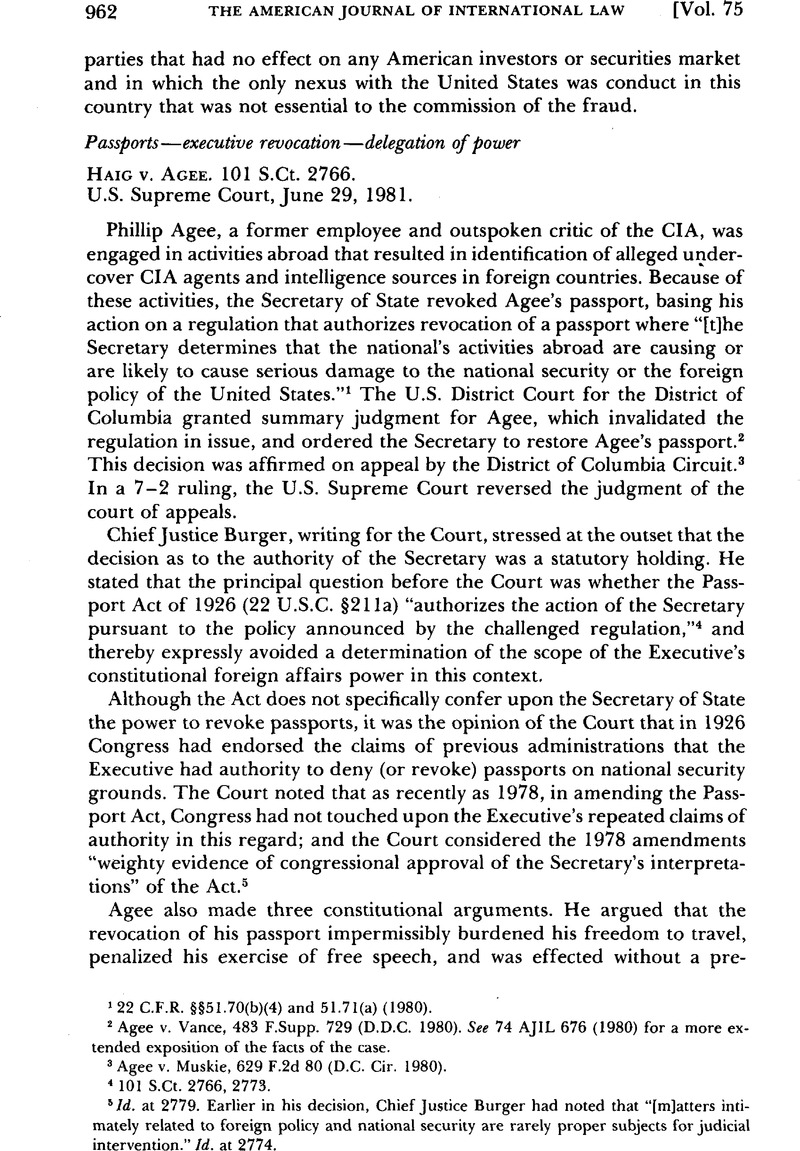No CrossRef data available.
Article contents
Abstract

- Type
- Judicial Decisions
- Information
- Copyright
- Copyright © American Society of International Law 1981
References
1 22 C.F.R. §§51.70(b)(4) and 51.71(a) (1980).
2 Agee v. Vance, 483 F.Supp. 729 (D.D.C. 1980). See 74 AJIL 676 (1980) for a more extended exposition of the facts of the case.
3 Agee v. Muskie, 629 F.2d 80 (D.C. Cir. 1980).
4 101 S.Ct. 2766, 2773.
5 Id. at 2779. Earlier in his decision, Chief Justice Burger had noted that “[m]atters intimately related to foreign policy and national security are rarely proper subjects for judicial intervention.” Id. at 2774.
6 Id. at 2781.
7 Zemel v. Rusk, 381 U.S. 1 (1965) (Secretary’s refusal to validate passports for travel to Cuba upheld); Kent v. Dulles, 357 U.S. 116 (1958) (Secretary’s refusal to issue passports to reputed Communists quashed). Justice Blackmun filed a brief concurrence agreeing with the dissent that the Court’s decision could not be reconciled fully with all the reasoning in Zemel and Kent. In his view, the majority should have openly disavowed the suggestion in these cases that evidence of a long-standing executive policy or construction in this area is not probative of congressional authorization.




